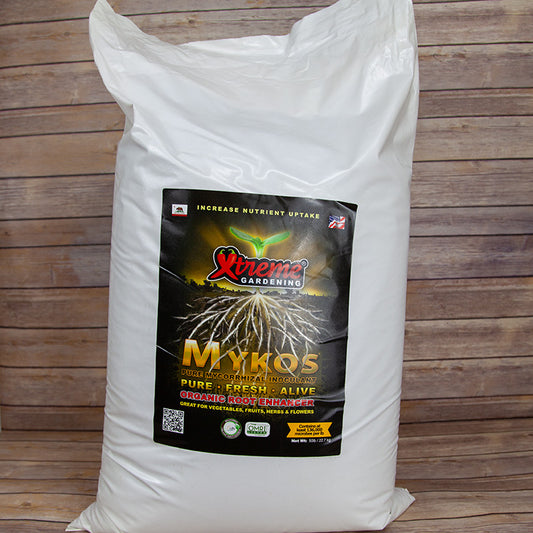Boost Your Plant Health with Mycorrhizal Inoculants: Explore Organic Mycorrhizae for Sale
Understanding Mycorrhizal Inoculants
Mycorrhizal inoculant is a powerful tool in gardening and agriculture, utilizing the symbiotic relationship between plants and fungi to boost plant health and growth. Plants provide sugars to mycorrhizal fungi, and in return, the fungi enhance nutrient and water absorption. Explore our selection of organic mycorrhizae and mycorrhizae for sale to improve your plants' vitality and overall performance.
What are Mycorrhizal Inoculants?
Mycorrhizal inoculants, as mentioned earlier, are beneficial fungi that establish a mutually beneficial relationship with a plant's roots. The term 'inoculant' implies that these fungi are introduced to the soil intentionally to enhance plant performance. This partnership between plants and fungi has evolved over millions of years and is a testament to the intricate web of life in the soil.
The concept behind mycorrhizal inoculants is quite straightforward: plants supply the fungi with sugars through photosynthesis, and in return, the fungi extend their hyphae (tiny root-like structures) into the soil, significantly increasing the surface area for nutrient and water absorption. This enhanced nutrient uptake can improve plant growth, disease resistance, and overall vitality.
Types of Mycorrhizal Fungi
You should be aware of two primary types of mycorrhizal fungi: Ectomycorrhizal fungi and Endomycorrhizal fungi.
-
Ectomycorrhizal Fungi: These fungi are primarily associated with trees. They form a sheath around the tree's root tips, enhancing nutrient uptake from the soil. Ectomycorrhizal fungi are vital for the health of many forest ecosystems.
-
Endomycorrhizal Fungi: Endomycorrhizal fungi, on the other hand, are the most common type and are associated with a wide variety of plants, including many crops and ornamentals. They form a symbiotic relationship by penetrating the plant's root cells, forming structures called arbuscules and vesicles that aid in nutrient exchange.
Supplementing Your Soil
In some cases, the natural presence of mycorrhizal fungi in your soil may be insufficient to support optimal plant growth. This is especially true if you cultivate plants in depleted or disturbed soils. In such scenarios, introducing mycorrhizal inoculants can be a game-changer.
When transplanting plants or trees, consider adding mycorrhizal inoculants to your planting mix. This simple step can significantly boost your plants' ability to access essential nutrients and water, helping them establish healthier root systems and thrive in their new environment.
Sulfur Fertilizers
While not directly related to mycorrhizal inoculants, sulfur is essential in soil health and plant nutrition. Sulfur (S) is often overlooked but is crucial in various plant metabolic processes. Similar to nitrogen, sulfur is a key component of proteins and is involved in the formation of essential amino acids.
Sulfur is usually present in the soil in various forms, such as elemental sulfur or compounds like gypsum. In high concentrations, sulfur can even influence soil pH, making it more acidic. However, it's important to note that it takes a substantial amount of sulfur to significantly impact soil pH and potentially harm plants.
For gardeners and farmers looking to optimize sulfur levels in their soil, sulfur fertilizers can be applied. These fertilizers are a valuable tool in fine-tuning soil nutrient balance and ensuring that plants have access to this often-neglected but essential element.
Mycorrhizal inoculants and sulfur fertilizers are valuable additions to the arsenal of tools available to gardeners and farmers. While mycorrhizal inoculants harness the power of beneficial fungi to enhance plant health, sulfur fertilizers help maintain optimal nutrient balance in the soil. Understanding and effectively utilizing these products can lead to healthier, more resilient plants and improved agricultural yields.
 Sold out
Sold out Sold out
Sold out Sold out
Sold out




















